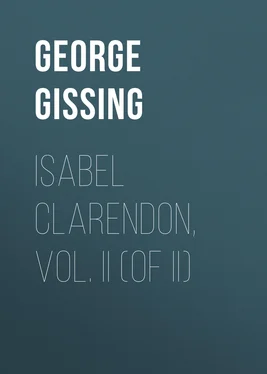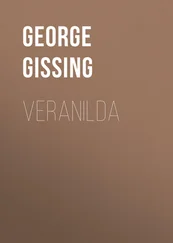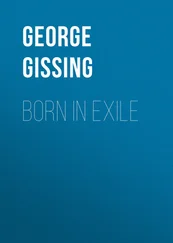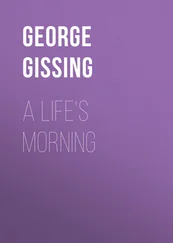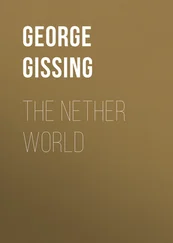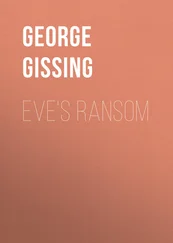George Gissing - Isabel Clarendon, Vol. II (of II)
Здесь есть возможность читать онлайн «George Gissing - Isabel Clarendon, Vol. II (of II)» — ознакомительный отрывок электронной книги совершенно бесплатно, а после прочтения отрывка купить полную версию. В некоторых случаях можно слушать аудио, скачать через торрент в формате fb2 и присутствует краткое содержание. Жанр: foreign_prose, literature_19, foreign_antique, на английском языке. Описание произведения, (предисловие) а так же отзывы посетителей доступны на портале библиотеки ЛибКат.
- Название:Isabel Clarendon, Vol. II (of II)
- Автор:
- Жанр:
- Год:неизвестен
- ISBN:нет данных
- Рейтинг книги:3 / 5. Голосов: 1
-
Избранное:Добавить в избранное
- Отзывы:
-
Ваша оценка:
- 60
- 1
- 2
- 3
- 4
- 5
Isabel Clarendon, Vol. II (of II): краткое содержание, описание и аннотация
Предлагаем к чтению аннотацию, описание, краткое содержание или предисловие (зависит от того, что написал сам автор книги «Isabel Clarendon, Vol. II (of II)»). Если вы не нашли необходимую информацию о книге — напишите в комментариях, мы постараемся отыскать её.
Isabel Clarendon, Vol. II (of II) — читать онлайн ознакомительный отрывок
Ниже представлен текст книги, разбитый по страницам. Система сохранения места последней прочитанной страницы, позволяет с удобством читать онлайн бесплатно книгу «Isabel Clarendon, Vol. II (of II)», без необходимости каждый раз заново искать на чём Вы остановились. Поставьте закладку, и сможете в любой момент перейти на страницу, на которой закончили чтение.
Интервал:
Закладка:
“What I want to know,” exclaimed Mr. Lyster, “is whether England is a civilising power or not. If so, it is our duty to go to war; if not, of course we may prepare to go to the–”
“Don’t hesitate, Mr. Lyster,” said Mrs. Stratton good-naturedly, “I’m sure we all agree with you.”
“Civilisation!” proceeded the politician, when the laugh had subsided; “that is what England represents, and civilisation rests upon a military basis, if it has any basis at all. It’s all very well to talk about the humanity of arbitration and fudge of that kind; it only postpones the evil day. Our position is the result of good, hard fighting, and mere talking won’t keep it up; we must fight again. Too long a peace means loss of prestige, and loss of prestige means the encroachment of barbarians, who are only to be kept in order by repeated thrashings. They forget that we are a civilising power; unfortunately we are too much disposed to forget it ourselves.”
“The mistake is,” remarked Frank Stratton, “to treat with those fellows at all. Why don’t we take a map of Asia and draw a line just where it seems good to us, and bid the dogs keep on their own side of it? Of course they wouldn’t do so—and then we lick’em!”
His mother looked at him with pride.
“I respect our constitution,” pursued Mr. Lyster, who was too much absorbed in his own rhetoric to pay much attention to the frivolous remarks of others; “but I’ve often thought it wouldn’t be amiss if we could have a British Bizmarck”—so he pronounced the name. “A Bizmarck would make short work with Radical humbug. He would keep up patriotism; he would remind us of our duties as a civilising power.”
“And he’d establish conscription,” remarked Frank. “That’s what we want.”
“Eh? Conscription? Well, I won’t go quite so far as that. It is one of our English glories that there are always men ready to volunteer for active service; men who are prepared to fight and, if need be, to die for their country. I shouldn’t like to see that altered. I think the voluntary system a good one. We are Englishmen; we don’t need to be driven to battle.”
Robert Asquith glanced at Isabel and smiled.
The weather was so bad in the afternoon that it was impossible to leave the house. The two young Strattons went to try and break each other’s heads at single-stick; the colonel, with his guests, repaired to the billiard-room, where they smoked, talked, and handled the cues. Asquith was not quite in the mood for billiards. When he had played with the colonel for half an hour, Mr. Lyster took his place, and he strolled round the room, examining the guns, cricket-bats, horse-whips, and pictures, which invited observation. Going to one of the seats to repose himself, he found a book lying close by on the floor, open leaves downwards, just as it had fallen. It was one of Captain Marryat’s novels. Robert threw up his legs on to the couch, and began to read.
Our friend was anything but a man of literary tastes; with the exception of purchases at railway stations, it is doubtful whether he had ever bought a book in his life. He read newspapers assiduously; they satisfied his need of mental pabulum. For the rest, he made the world his book, and had the faculty of extracting amusement from it in sufficient quantities to occupy his leisure time. He was anything but an ignorant man; conversation, and the haphazard experiences of life, had supplied him in a living way with knowledge which ordinarily has to be sought from the printed page; but intellectual tendencies, properly speaking, he had none. Art he only cared for in the elementary way; for music, he plainly confessed he had no ear. On men and manners, he habitually reflected, and had fair natural power of insight; problems of life were non-existent for him.
The story which he had picked up absorbed him; he read on and on with a boy’s simple enjoyment. His body rested in a corner of the seat, his legs were stretched at full length, one over the other, he held the book up in both hands; often he laughed aloud, and at other times his face wore an expression of the gravest interest. The billiard players had passed out of his world.
When at length he put down the book, he found himself alone in the room. He jumped up, flung the book on to the green table, yawned, stretched his arms, slapped his legs to restore circulation, and walked to the window. It was growing dark. In the leafless garden the rain fell steadily; occasionally drops made their way down the chimney, and hissed upon the fire. Robert had the feeling of one who awakes after dissipation, a debauched and untidy sensation. He felt the necessity of plunging his face in water.
Having done so, he made his way to the drawing-room. Visitors were not to be expected such an afternoon as this, and at first he thought the room was empty. But Mrs. Stratton was sitting with her back to him; the ruffling of a newspaper she held apprised him of her presence.
“So some one has appeared at last,” said the lady, “not for my company, of course, but for a cup of tea. Would you be so good as to ring the bell?”
“The tea will be grateful, I admit,” returned Robert, doing her bidding, “but your society no less. In fact, I want to speak to you.”
“Yes?”
“Mrs. Clarendon refuses my invitation—that I mentioned in my letter, you remember.”
“Refuses? What is her objection?”
“Nothing definite. She says she cannot leave England, that’s all. Has she—I don’t think there’s any harm in asking you, is there?—has she spoken with you at all of what she is going to do?”
“Well, no. In fact, it’s a subject she won’t approach. I don’t think she has formed any plans whatever yet.”
Asquith reflected, and at the same time tea was brought in and lamps lit.
“I half supposed,” said Mrs. Stratton, glancing aside at him, as she held up the teapot, “that you were the most likely person to know of her plans.”
“I assure you, Mrs. Stratton, that was a mistake, an entire mistake.”
The lady raised her eyebrows a little and carefully removed a tea-leaf from her cup.
“You take it for granted,” she asked, after a moment, “that she will really quit Knights-well?”
“How otherwise? I am perfectly sure that nothing would induce her to continue living there under the new régime . If the persons concerned had been—had been other than they of course the affair might have been very simple. But not as it is.”
“By-the-bye,” he added, “she gave me one piece of information. She does not intend to live in London.”
“Where then, I wonder?”
“I can’t conjecture.”
“I would repeat the invitation, I think,” said Mrs. Stratton, looking at him.
“I shall do so, though not just yet.”
The colonel and Mr. Lyster came in talking loudly. .
“Ah, we left you asleep,” said the former to Robert. “Didn’t like to disturb you. We’ve had a walk.”
“A walk, in this weather!” exclaimed his wife.
“Oh yes; a little rain does one no harm. Not a bad afternoon; there’s a pleasant warmth in the air. Don’t you notice a warmth in the air, Asquith?”
“Yes, here in the drawing-room. I can’t answer for outside.”
“Oh, it’s distinctly warm. Eh, Lyster?”
Mrs. Clarendon appeared in the room. The colonel lost his ease, and began to walk about. The conversation became general.
There were several other people at dinner. It fell to Asquith to take down a certain Miss Pye, a tall young lady with a long thin nose, simply dressed in white, with much exposure of bust. This décolleté costume was a thing Robert found it impossible to get used to; he felt that if he went on dining with ladies for another five-and-twenty years there would still arise in him the same sensation of amazement as often as he turned to speak and had his eyes regaled with a vision of the female form divine, with its most significant developments insisted upon. Singular questions of social economy invariably suggested themselves. How far was this fashion a consequence of severe competition in the marriage market? He always found it a little difficult to look his fair neighbour in the face, and, when he at length did so, experienced surprise at her placid equanimity. Miss Pye’s equanimity it would have taken much to disturb. As in duty bound, Robert made his endeavour to interest her in various kinds of conversation. The affirmative and negative particles alone replied to him. She ate with steady application; she smiled feebly when he attempted a very evident joke; she appeared to have no concern in any of the things about which men and women use or abuse the gift of speech. Yet he succeeded at last.
Читать дальшеИнтервал:
Закладка:
Похожие книги на «Isabel Clarendon, Vol. II (of II)»
Представляем Вашему вниманию похожие книги на «Isabel Clarendon, Vol. II (of II)» списком для выбора. Мы отобрали схожую по названию и смыслу литературу в надежде предоставить читателям больше вариантов отыскать новые, интересные, ещё непрочитанные произведения.
Обсуждение, отзывы о книге «Isabel Clarendon, Vol. II (of II)» и просто собственные мнения читателей. Оставьте ваши комментарии, напишите, что Вы думаете о произведении, его смысле или главных героях. Укажите что конкретно понравилось, а что нет, и почему Вы так считаете.
